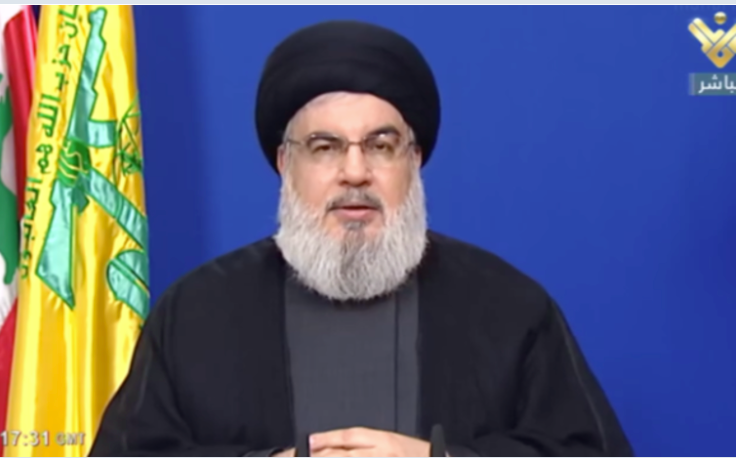
Collision course? How Israel and Hezbollah may be forced to fight another war within the year
On August 5th 2021, Hezbollah fired more than a dozen rockets at northern Israel for the first time, since the last Lebanon war in 2006 which killed 1200 Lebanese and 160 Israelis. In response to those rockets, Israel launched air strikes against multiple Hezbollah targets. The Iron Dome system intercepted most of these rockets, while few landed in open areas and there were no injuries declared by the Israeli officials. Hassan Nasrallah claimed that the launching of the rockets was a response to Israel air raids on Lebanese soil. He said in a televised speech, “we wanted to tell the enemy that any airstrike by the Israeli air force on Lebanon will inevitably draw a response, though in a suitable and proportionate way”. However, Hezbollah’s swift halting of escalation after launching dozens of rockets on the north of Israel and the short and limited response of Israel clearly showed that neither Israel nor Hezbollah wants war. Hezbollah is concerned with the declining situation in Lebanon, where inflation is out of control and there are shortages of electricity, fuel, food and medicine. This situation has led to discontent with the Government (and Hezbollah as well) that started back in 2020 amid the Beirut Port explosion, which encouraged thousands of angry protesters chanting anti-Hezbollah slogans, accusing the group for illegally bringing tons of ammonium nitrate into Beirut, and their reputation is still declining. Lebanon's influential Maronite Catholic Patriarch Bechara Boutros during his Sunday Mass urged the Lebanon army to “confront Hezbollah for the sake of Lebanon, and to take control of the entire lands of the south, to prevent the launching of missiles from Lebanon”, referring to the recent rockets fired into northern Israel by the group. In an effort to reassure Lebanese citizens about the recent clashes with Israel, Hezbollah leader Nasrallah said in a televised statement, “We don’t want to get into problem with anyone. We want to help our people”.
However, Hezbollah is part of a growing worldwide alliance under Iran’s ideological and military authority. Iran’s involvement in Lebanon’s affairs since 1976, within the Shi’a community, convinced the majority of Shia community Hezbollah, to coalesce into the Lebanese branch of the Iranian Islamic revolution known as Hezbollah. Hezbollah has also participated in the Syrian war to help Bashar Assad and Iran defeat the rebels there. Hezbollah isn't shy about the importance of the funding they receive from Iran. In June 2016, Nasrallah said “as long as there is money in Iran, we will have money”. About a week later (Friday July 1st, 2016) the deputy head of the IRGC (currently the head of the Quds force) Hossein Salami said “we have 100,000 rockets that are ready to fly from Lebanon towards Israel”, referring to a potential conflict.
That potential conflict between Iran and Israel is becoming more of a likely possibility with the continuing development of Iran’s uranium, with Benny Gantz warning on August 3rd that “Iran is 10 weeks away from gaining the bomb” and warning that “Israel is ready to attack Iran”. With the recent breakdown of the negotiations to return to the JCPOA, Irans has continued to accelerate its enrichment and now a military option seems to be the most likely way Israel will try to stop them from gaining nuclear weapons. Although Gantz has warned about the possibility of an Israeli strike, he has also worked to mobilize the international community, to restrain Iranian hostilities and unlike the previous government, took the initiative in involving the Security council and rebuilding the trust between Israel and various international organizations such as the E.U and U.N. The commander of the Quds force (the commandos of the IRGC) Hossein Salami issued a strong warning to countries threatening Iran saying during a visit to the country’s military base that Iran won’t hesitate to show a strict and decisive response.
The recent escalating tensions between Iran and Israel are not only related to Iran's nuclear enrichment efforts, but are also tied to the “shadow war” that is going on between Iran and Israel, where Iran has been targeting Israeli-linked shipping with limpet mines and drone attacks and Israel has been hitting Iranian soldiers and its proxies in Syria. However, the July 30th attack on the Israeli owned tanker Mercer Street which killed a British and Romanian citizen, was the first time these Irainian attacks on Israeli shipping resulted in fatalities. The foreign ministers of U.S, Britain, Romania and the E.U issued a joint statement condemning the attack and called it “ a deliberate and targeted attack,” adding that “all available evidence clearly points to Iran”. The US military’s Central Command has announced the results of its investigation into last month’s fatal attack and concluded that the Unmanned Aerial Vehicle was produced in Iran. The evidence has been shared with explosive experts in Britain and Israel. The investigation also recovered part of the drone ‘wing and after testing it was concluded that the drone was made in Iran. On Aug. 3 Israel’s envoy to the U.N Gilad Erdan, sent a letter to the Security Council, demanding its immediate action to the maritime incidents in the region and declared that Israel would retain its right to act against any future Iranian threats.
Two questions now remain that will determine whether Hezbollah and Israel will undergo another conflict in the near future. Will Israel attack Iran if they continue to get closer to a Nuclear weapon? If the answer to that question is yes, then the second question becomes more relevant. Will Hezbollah attack Israel if Iran tells it to? The answer is probably yes, but before Hezbollah agrees to this likely Iranian demand, it should remember the devastation the 2006 war brought to Lebanon, the current state of the Lebanese economy and put its fellow Lebanese, before the IRGC leadership.
